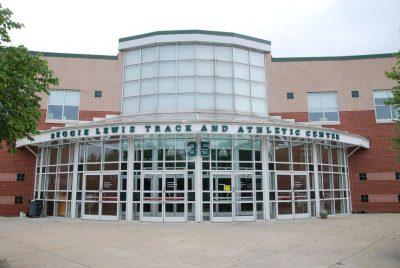Boston Mayor Kim Janey announced a Vaccine Equity Grant Initiative Friday that is designed to increase access and awareness among communities disproportionately affected by the COVID-19 pandemic.

The program — a joint effort between Janey, the Boston Public Health Commission and the Office of Health and Human Services — includes $1.5 million in available funding for nonprofits, according to a Friday press release.
Grant applications will open Wednesday and close April 9.
“We are proud to be part of this grant initiative that will help us increase our current efforts to make sure residents our hardest hit communities have access to the vaccine and the support to get vaccinated when it is available to them,” Caitlin McLaughlin, director of media relations for BPHC, wrote in an email.
Awards will range from $100,000 to $250,000 to be used across four months by applicant groups who develop vaccine equity tactics for marginalized communities with high COVID-19 positivity rates, according to the press release.
Applicants’ programs should target minority communities, those with disabilities, individuals over 65 and residents of Chinatown, Dorchester, East Boston, Hyde Park, Mattapan, Roslindale and Roxbury, the release stated.
Maddie Ribble, director of public policy and campaign strategy for the Massachusetts Public Health Association, said the effects of COVID-19 “have not been born equally.”
“Residents of color in Massachusetts have been disproportionately impacted and significantly so by COVID,” Ribble said. “Direct fund funding is absolutely essential.”
The initiative will prioritize applicants pursuing clinical and community-based partnerships, according to the release.
“The more people are educated, the easier it might be to get this rollout completely covering and touching and reaching more folks comfortably,” said Matthew Parker, executive director of the Union of Minority Neighborhoods.
Parker said while funding is “crucial” to program success, he wants to see improved transparency and clarity from government and elected officials.
“I think the government has to do a better job of listening to the people,” Parker said. “Are we talking to our residents, our businesses and seeking their narrative and their thoughts on how is it going?”
McLaughlin wrote that the BPHC will soon launch a public campaign to establish widespread awareness of the benefits and importance of receiving the vaccine.
Eva Millona, president and CEO of the Massachusetts Immigrant and Refugee Advocacy Coalition, wrote in an email statement that while she was “deeply appreciative” of the new funding, more action by the City is necessary.
She added that the MIRA Coalition would like the City Council to endorse Councilor Michelle Wu’s proposed ordinance that would require weekly vaccination site number reports be made available publicly, as well as the information regarding their hours, staffing, location and the demographics of vaccine recipients.
The ordinance would also ensure that every neighborhood has access to a community vaccination site that has free COVID-19 testing and flexible hours.
“We are deeply grateful for the heroic efforts thus far of community and philanthropic organizations, but state and local governments need to do more to ensure equity,” Millona wrote
Ribble said while most of MPHA’s demands are focused on at the state level, the initiative is a positive change for minority communities in Boston.
The MPHA, along with the Vaccine Equity Now! Coalition, are calling for Gov. Charlie Baker to honor his earlier commitment to allocate an additional 20% of vaccines to the communities most affected by the pandemic.
“We know that eligibility doesn’t equal access, we’ve seen the sort of ‘Hunger Games’ approach to the vaccine,” Ribble said. “The communities that have been most impacted, they need that community outreach, but they also need doses of vaccines for their residents to have access to.”
Twenty-four percent of known COVID-19 cases have been among Black residents, 30% among Hispanic and Latinx residents and 6% among Asian American and Pacific Islander residents since the pandemic’s start, according to the release.
“We don’t want to see our communities end up on the short end of the stick,” Parker said. “Now now that there’s work happening to alleviate some of that and for more equitable vaccine distribution, I feel like it’s a step in the right direction.
More than 39,000 individuals from Boston’s Asian, Black and Hispanic populations have been fully vaccinated, compared to nearly 51,000 fully vaccinated white residents.
“There’s a basic principle of justice and fairness that people who have been hurt the most by this pandemic should have prioritized access to the thing that will get us over it,” Ribble said. “We will not as a state get to the other side of this pandemic while some communities are still suffering from it.”






















































































































